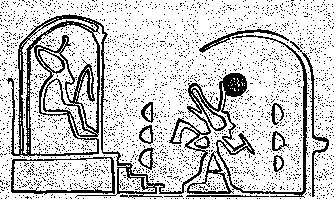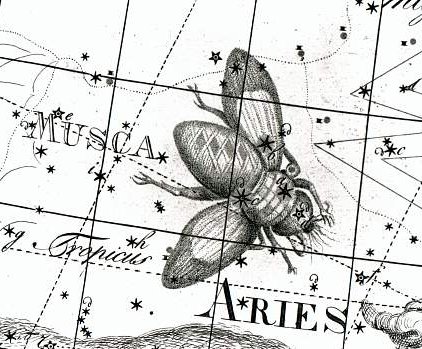Once again. The number of the stolen species of uhi roots could possibly be a reference to the astronomical denomination of the central glyph in the asterism Musca Borealis (Bharani, the Bearer) as 39 Arietis.
... Watching TV does give some knowledge. For instance was I told that modern science now had discovered that the scarab beetle had the unique ability to orient itself from the direction of the Milky Way. Surely, I thought, this must once upon a time had been well known (common knowledge) ...
... Then King Matua said to Hotu, 'You must not forget [he mee o rehu] the flies [te takaure] when you take along (all the things that are necessary) and sail off. If you forget the flies [ana rehu i a koe te takaure], the multitude (piere) of the people will disappear [he ngaro tou piere]. When you reach the land [ana tomo ki runga.ki tou kainga] to which you are travelling [ena koe ka oho], it will be over quickly (?) for the multitude of the people. When the flies die [ana moko te ihu o te takaure], the human population dies too [he moko tokoa te ihu o tou piere tangata].' [E:57] ... From a religious point of view, the high regard for flies, whose increase or reduction causes a similar increase or reduction in the size of the human population, is interesting, even more so because swarms of flies are often a real nuisance on Easter Island, something most visitors have commented on in vivid language. The explanation seems to be that there is a parallel relationship between flies and human souls, in this case, the souls of the unborn. There is a widespread belief throughout Polynesia that insects are the embodiment of numinous beings, such as gods or the spirits of the dead, and this concept extends into Southeast Asia, where insects are seen as the embodiment of the soul ... ... Men's spirits were thought to dwell in the Milky Way between incarnations. This conception has been handed down as an Orphic and Pythagorean tradition fitting into the frame of the migration of the soul. Macrobius, who has provided the broadest report on the matter, has it that souls ascend by way of Capricorn, and then, in order to be reborn, descend again through the 'Gate of Cancer' ...
By jumping over the places corresponding to Adhil (γ) / Spica and Mira / Khambalia (λ) the number of stolen yam species became 39 instead of the otherwise expected 41. The intention might have been to arrive at a multiple of 13. ... The edges contain a total of 39 notches in groups of 6, 13, 7 and 13.
... From Rogo at 0h to the end of the days when only cold food was served - as I have suggested - there were 13 days:
And from Sirrah to Polaris there were twice 13 = 26 days:
I.e., there ought to be 13 days also from Polaris to Bharani, but it was not (*41 - *26 = *15) - a fact worthy of remembering:
Instead we can count from the Topknot of Taranga (*0) to 39 he rai atanga (*39). The word rai is here probably ra'i = ragi = sky. Ragi, Ra'i, T. 1. Sky. 2. Palace. 3. Prince. Henry. 1. Sky, heaven, firmament; ragi moana, blue sky. 2. Cloud; ragipuga, cumulus; ragitea, white, light clouds; ragi poporo, nimbus; ragi hoe ka'i cirrus (literally: like sharp knives); ragi viri, overcast sky; ragi kerekere, nimbus stratus; ragi kirikiri miro, clouds of various colours. 3. To call, to shout, to exclaim. Vanaga. 1. Sky, heaven, firmament, paradise; no te ragi, celestial. 2. Appeal, cry, hail, formula, to invite, to send for, to notify, to felicitate, precept, to prescribe, to receive, to summon; ragi no to impose; ragi tarotaro, to menace, to threaten; tagata ragi, visitor; ragikai, feast, festival; ragitea, haughty, dominating. 3. Commander. 4. To love, to be affectionate, to spare, sympathy, kind treatment; ragi kore, pitiless; ragi nui, faithful. Churchill. Modoc, a language used on the northwest coast of North America: 'A single word, lagi, was used both for the chief and for a rich man who possessed several wives, horses, armour made of leather or wooden slats, well-filled quivers and precious firs. In addition to owning these material assets, the chief had to win military victories, possess exceptional spiritual powers and display a gift for oratory.' The Naked Man. Taga. 1. Act, business, anecdote; taga poki, anecdote, nonsense, story, puerile, childish. 2. Sack. PS Sa., Fu., Niuē, Viti: taga, a bag. To.: taga, the colon; tagai, a sack. Churchill. Presumably it was remembered that anciently in the Golden Age of the Bull's Eye (Ain, ε Tauri)
new fire was produced from old wood fetched from the Whirlpool: ... A man had a daughter who possessed a wonderful bow and arrow, with which she was able to bring down everything she wanted. But she was lazy and was constantly sleeping. At this her father was angry and said: 'Do not be always sleeping, but take thy bow and shoot at the navel of the ocean, so that we may get fire.' The navel of the ocean was a vast whirlpool in which sticks for making fire by friction were drifting about. At that time men were still without fire. Now the maiden seized her bow, shot into the navel of the ocean, and the material for fire-rubbing sprang ashore. Then the old man was glad. He kindled a large fire, and as he wanted to keep it to himself, he built a house with a door which snapped up and down like jaws and killed everybody that wanted to get in. But the people knew that he was in possession of fire, and the stag determined to steal it for them. He took resinous wood, split it and stuck the splinters in his hair. Then he lashed two boats together, covered them with planks, danced and sang on them, and so he came to the old man's house. He sang: 'O, I go and will fetch the fire.' The old man's daughter heard him singing, and said to her father: 'O, let the stranger come into the house; he sings and dances so beautifully.' The stag landed and drew near the door, singing and dancing, and at the same time sprang to the door and made as if he wanted to enter the house. Then the door snapped to, without however touching him. But while it was again opening, he sprang quickly into the house. Here he seated himself at the fire, as if he wanted to dry himself, and continued singing. At the same time he let his head bend forward over the fire, so that he became quite sooty, and at last the splinters in his hair took fire. Then he sprang out, ran off and brought the fire to the people ... ... A sidelight falls upon the notions connected with the stag by Horapollo's statement concerning the Egyptian writing of 'A long space of time: A Stag's horns grow out each year. A picture of them means a long space of time.' Chairemon (hieroglyph no. 15, quoted by Tzetzes) made it shorter: 'eniautos: elaphos'. Louis Keimer, stressing the absence of stags in Egypt, pointed to the Oryx (Capra Nubiana) as the appropriate 'ersatz', whose head was, indeed, used for writing the word rnp = year, eventually in 'the Lord of the Year', a well-known title of Ptah. Rare as this modus of writing the word seems to have been - the Wörterbuch der Aegyptischen Sprache (eds. Erman and Grapow), vol. 2, pp. 429-33, does not even mention this variant - it is worth considering (as in every subject dealt with by Keimer), the more so as Chairemon continues his list by offering as number 16: 'eniautos: phoinix', i.e., a different span of time, the much-discussed 'Phoenix-period' (ca. 500 years) ...
|
||||||||||||||||||||||||||||||||||||||||||||||||||||||||||||||||||||||||||||||||||||||||||||||||||||||||||||||||||||||||||||||||||||||||||||||||||||||||||||||||||||||||||||||||||||||
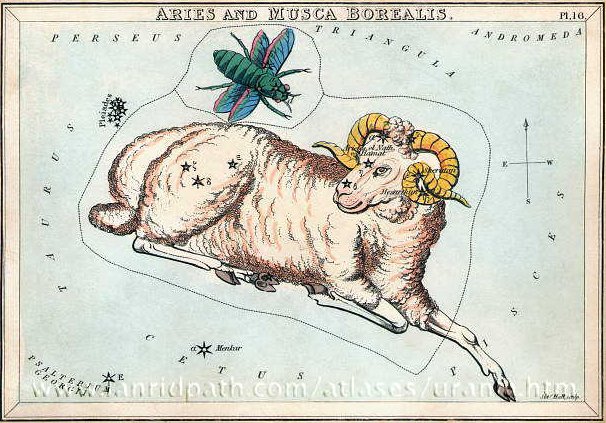
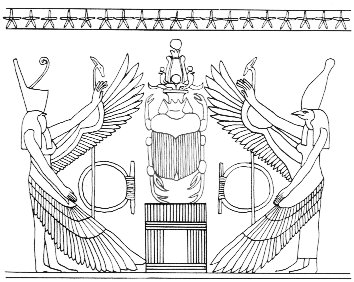
.jpg)

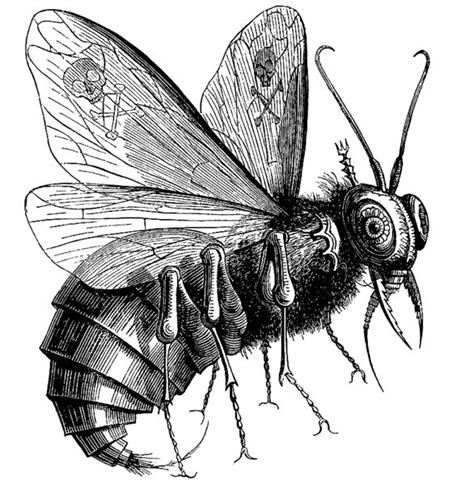
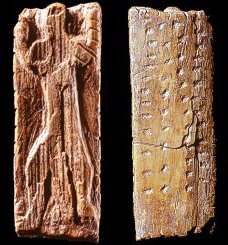

.jpg)



